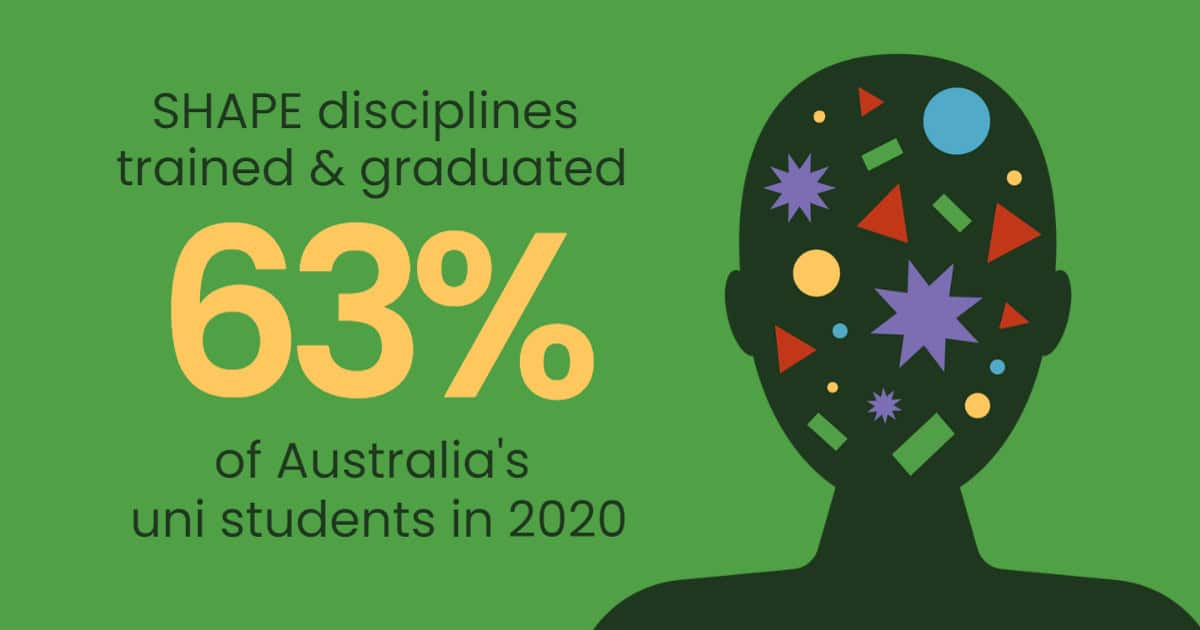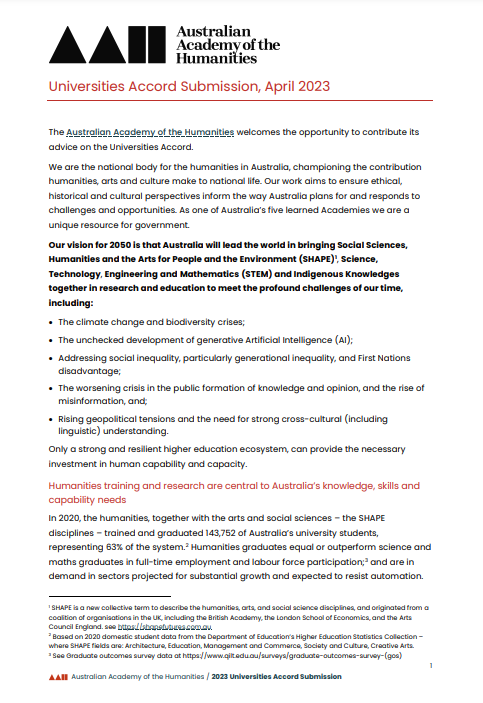As the national body for the humanities in Australia, our response included a range of bold and impactful ideas, including a Universities Commission drawing on the integrative powers of the Learned Academies, and a Humanities Future Fund to address much-needed sector reforms, including the provision of new programs in the national interest and to invest in much-needed humanities research infrastructure.
 In 2020, the humanities, together with the arts and social sciences – the SHAPE disciplines – trained and graduated 143,752 of Australia’s university students, representing 63% of the system.
In 2020, the humanities, together with the arts and social sciences – the SHAPE disciplines – trained and graduated 143,752 of Australia’s university students, representing 63% of the system.
Humanities graduates equal or outperform science and maths graduates in full-time employment and labour force participation; and are in demand in sectors projected for substantial growth and expected to resist automation.
Australia’s future workforce requires humanities skills and knowledge – understanding of our global context, linguistic diversity, critical understanding and analytical skills.
Yet SHAPE graduates have been virtually invisible to date in discussions about how we will address the key challenges of our time.
The focus on STEM alone is counterproductive. All the big challenges and opportunities for the nation have human, social and cultural dimensions.
Ensuring a strong and sustainable SHAPE sector also has clear benefits to STEM, in terms of interdisciplinary collaboration.
We urge the Panel to adopt a whole-of-sector agenda with SHAPE and STEM both in view, looking to the removal of barriers to collaboration across disciplines, and introducing a level playing field in programs that support teaching and research.
Summary of our recommendations
ONE
The Panel consider establishing a coordinating body, for example, a Universities Commission, to manage the Accord as an ongoing process.
TWO
That the Universities Commission include the Learned Academies as key stakeholders on its board, as an expert voice on a range of higher education matters, independent of universities and with a mandate to produce national reports on the state of the disciplines to inform national coordination and planning.
THREE
That the panel make a significant recommendation in respect to the development of a funded national Humanities Infrastructure strategy that will address the long-term needs of the higher education sector, harnessing capabilities of Large Language Models (LLMs) and Artificial Intelligence (AI). The strategy must include the necessary staffing to support this infrastructure.
FOUR
We recommend that ERA is replaced by a State of Research Report to address performance, capabilities and priorities in a global performance context.
FIVE
The creation of a Humanities Future Fund, to fund vital initiatives in humanities teaching and research, such as: the provision of humanities education programs in the national interest, new CoEs and bridging research grants, and much-needed Humanities Research Infrastructure (as noted in recommendation three).
SIX
A refreshed approach to addressing gender discrepancy and diversity in SHAPE disciplines.
SEVEN
We invite the Accord Panel to support the establishment of the Prime Minister’s Prizes for Humanities and Social Sciences.




